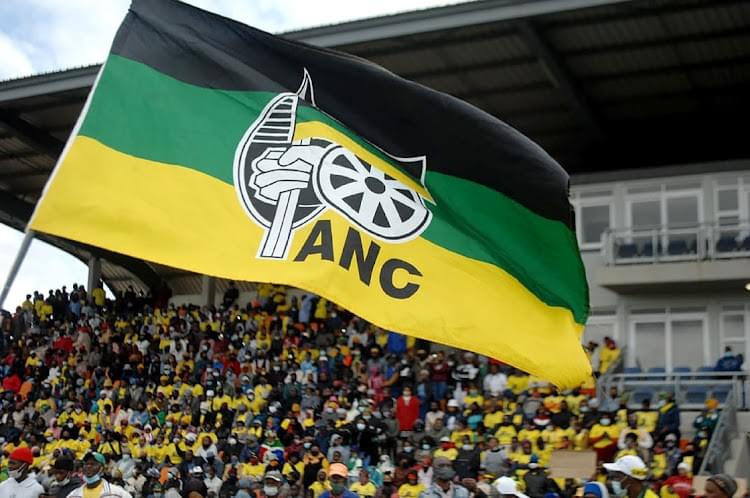
The African National Congress (ANC), once the emblem of South Africa’s liberation and a shining beacon of hope for millions, now stands at a crossroads, marred by controversy, mismanagement, and waning public confidence. As we approach the ANC’s January 8th Statement—a tradition marking the party’s anniversary—it is worth reflecting on its storied history, current challenges, and what the future holds for this political giant.
Founded in 1912, the ANC is Africa’s oldest liberation movement. It played a pivotal role in dismantling apartheid and ushering in a democratic South Africa in 1994. Figures like Nelson Mandela, Winnie Madikizela mandela, Albertina Sisulu, Heln Suzman, Walter Sisulu, Oliver Tambo, and many others symbolize the party’s sacrifices and vision for a just, non-racial, and inclusive society. The ANC’s triumph in the 1994 elections marked the beginning of a new era, one where they assumed the role of governing the nation.
For years, the party’s principles—unity, non-racialism, and economic freedom—inspired not only South Africans but the world. The ANC-led government introduced policies aimed at addressing historical injustices, including the Reconstruction and Development Programme (RDP), land reforms, and affirmative action. However, the journey from liberation to governance has been fraught with challenges.
Over the decades, the ANC has faced mounting criticism for its inability to effectively govern the country. Issues such as corruption, factionalism, poor service delivery, and mismanagement of state resources have tarnished its reputation. High-profile scandals, including State Capture and maladministration in state-owned enterprises like Eskom and Transnet, have eroded public trust.
The recent general elections underscored the ANC’s declining popularity, as it failed to secure an outright majority, leading to the establishment of a Government of National Unity (GNU). This outcome—unprecedented in post-apartheid South Africa—raises serious questions about the party’s ability to maintain its dominance and relevance in the face of growing discontent.
This year’s January 8th Statement is set to take place in Khayelitsha, one of the largest townships in South Africa. On the surface, this choice of venue might seem symbolic—a nod to the people who form the backbone of the ANC’s support base. However, a deeper interrogation reveals a sobering reality.
Khayelitsha, like many townships, epitomizes the failures of governance. It is a community plagued by high unemployment rates, widespread poverty, rampant crime, and inadequate public services. Extortion gangs, drug and alcohol abuse, escalating murders, and gender-based violence (GBV) paint a grim picture of life in this township. As an the leader of an NPO working in Khayelitsha, The Great People of South Africa I have witnessed firsthand the dire state of this community. Police resources are stretched thin, and GBV cases often go unaddressed due to systemic inefficiencies.
The question arises: is the ANC not ashamed to deliver its January 8th Statement in such a setting without addressing the root causes of these challenges? For decades, the party has promised a better life for all, yet communities like Khayelitsha remain trapped in cycles of poverty and violence. One wonders whether this event will bring tangible solutions or merely serve as a platform for empty rhetoric.
To be fair, the ANC deserves recognition for its historical role in liberating South Africa. The party’s policies have lifted millions out of poverty, expanded access to education and healthcare, and built a robust constitutional democracy. These achievements should not be overlooked.
However, the ANC must also confront its failures. The inability to create sustainable jobs, curb corruption, and provide safety for vulnerable communities is a damning indictment of its governance. The upcoming local government elections will serve as a litmus test for the ANC’s future. If it continues on its current trajectory, the party risks losing its grip on power altogether.
Now, let me be very clear bangani. I am not an ANC member nor supporter, but as a blogger with an open mind to write on different topics, offering my unsolicited advice, I think this is what the ANC should consider. If the party wishes to reclaim its moral authority and political relevance, it must undergo a profound transformation. This includes the following:
Addressing Corruption: Implementing strict measures to root out corrupt officials and hold them accountable. Investing in Communities: Prioritizing service delivery, especially in marginalized areas like Khayelitsha. Engaging Youth: Developing targeted programs to address youth unemployment and substance abuse.
Strengthening Leadership: Ensuring that leaders are chosen based on merit and integrity rather than factional loyalty. Honoring Traditions: Upholding the values of unity, non-racialism, and community empowerment that defined the party’s liberation struggle.
The ANC’s January 8th Statement is an opportunity for reflection, renewal, and recommitment to its founding principles. Whether the party seizes this moment or squanders it remains to be seen.
As South Africans, we must continue to hold our leaders accountable, demand better governance, and work collectively to build the nation we all deserve.
For the ANC, the time for excuses is over; the time for action is now.

